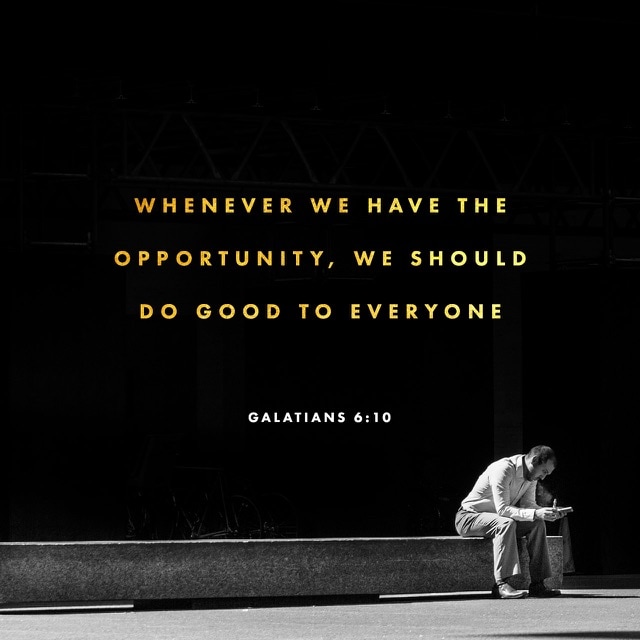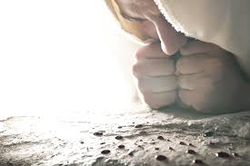I'd like to share this wonderful gift of wordsmith with all who are in the midst of their Lenten journey. It's taken from the devotional "A Slice of Infinity" and was written by the talented Margaret Manning Shull. The Spirit immediately drove him out into the wilderness. And he was in the wilderness forty days, tempted by Satan; and he was with the wild beasts; and the angels ministered to him.(1) The Gospel of Mark begins with this intriguing narrative of the Spirit compelling Jesus into the wilderness to be tested and to make his home among wild beasts. The original Greek language is so forceful as to imply that the Spirit literally expelled Jesus into this land of wild beasts and satanic attack. It is even more striking when compared to Matthew and Luke’s gospels, which both suggest that Jesus was “led by the Spirit” who accompanied him into the wilderness.(2) Despite Matthew and Luke’s gentler version, the point is still the same: the Spirit led Jesus into the wilderness to be tested and tormented by the devil. It seems natural to ask why the Spirit would compel Jesus into the wilderness. The history of Israel and particularly the Exodus from Egypt gives some perspective on this question. After four hundred years of oppression and enslavement, God sent Moses to deliver the people and to lead them into the Promised Land. A great drama ensues between the “gods” of the Egyptians and the God of Israel. Ten plagues fall, the sea is parted, and the Egyptian army is swallowed up by the raging waters. And then we read: “Moses led Israel from the Red Sea, and they went out into the wilderness of Shur; and they went three days in the wilderness and found no water…. and the whole congregation of the sons of Israel grumbled against Moses and Aaron in the wilderness.”(3) Israel would spend the next forty years, the text tells us, wandering in that wilderness of lament and bitterness with God being put to the test. Would God provide for their needs or would they come out of Egypt only to die in the desert? From the narrative’s perspective, what began as a great deliverance stalls in the wilderness of the Sinai. Like Israel before him, Jesus’s story, as recorded by Mark, begins with great drama. John the Baptist announces the Deliverer: Israel’s exile was over, for the Messiah had come. The Deliverer is baptized by John and in front of the crowds declared “the beloved Son” of God. What a tremendous beginning to his earthly ministry. And yet, like Israel, Jesus begins that earthly ministry not with healings and miracles, or with fanfare and great teachings, but by being “immediately cast out into the wilderness.”
For Christians, Lent is a season in which the journey through the wilderness precedes Easter morning. Of course, what is enacted in the season is very much a part of lived experience of many in our world. Many dwell in wilderness spaces of suffering, disappointment, doubt, or sin. Promised lands of hope, fulfillment, and healing seem far off and foreign. In these lands, what do we do? Who will we turn to? In what, or in whom, do we place our trust? And, when put to the test, have the ‘gods’ we have chosen to save us prove to be true? The journey of life is a journey that inevitably runs through the wilderness. We cannot escape it, nor can we go around it. And yet, in the life of Israel God brings bread from heaven and water from a rock in their wilderness sojourn. God was with them in the desert. Moreover, the gospels present a God who in Jesus Christ did not seek to escape the wilderness either, but was compelled into it. In his own testing, Jesus reveals that a new kind of life can be found even in those seemingly deserted places—God provides even there. While we will often wander in the wilderness, with God’s help we can indeed be transformed by it.
Margaret Manning Shull is a member of the speaking and writing team at Ravi Zacharias International Ministries in Bellingham, Washington.
(1) Mark 1:12-13. "Mother Teresa once gave an interview to Hello! magazine. She was asked the question, 'Is it only the affluent who give?' She replied, 'No, even the poorest of the poor give. The other day a very poor beggar came up to me and said, "Everyone gives to you and I also want to give you twenty paisa" - which is about two pence. I thought to myself, what do I do? If I take it he won't have anything to eat, but if I don't take it I would hurt him so much. So I took, and he was so happy because he had given to Mother Teresa of Calcutta to help the poor. Giving cleans the heart and helps you get closer to God. You get so much back in return.' Generosity is not just a nice character trait that people have. It is right at the heart of what our faith is all about. C.S. Lewis defined Christianity as 'a kind of giving'. God has poured out his generosity to you in Jesus (John 3:16), and you are called to respond in faith and generosity to others. The key to blessing is generosity - 'the righteous give generously' (Psalm 37:21)." How do we give? Better yet what are we to give? Time? Money? Talent? Love? Wisdom? Patience? From our hands to our hearts give generously. And you will be blessed. I borrowed this generously from Alpha's Devotional "Read the Bible in One Year 2017" from the Bible app. In saying "no" I shut my eyes to the blessings around me. |
Ian MacdonaldAn ex-copywriter turned punk rock pastor and peacemaker who dedicates his life to making the world a better place for all humanity. "that they all might be one" ~John 17:21“Prius vita quam doctrina.”
~ St. Thomas Aquinas (1225–1274) * “Life is more important than doctrine.”
Archives
June 2024
|




